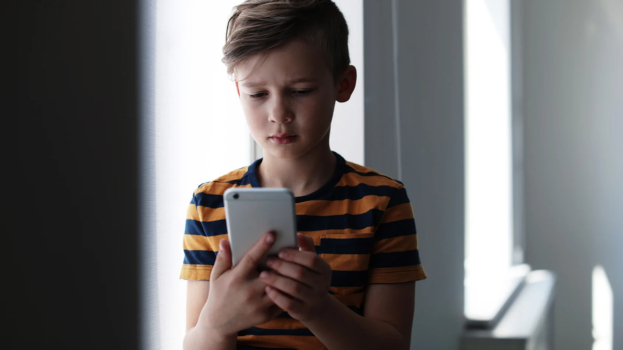
Almost two thirds of children learning about artificial intelligence through social media
Almost two thirds (63%) of young people are learning about artificial intelligence through social media, according to a new report.
Barnardos Online Safety Programme has released an in depth report entitled Exploring AI (Artificial Intelligence) with Children and Young People polled more than 500 children and young people from fifth and sixth class in primary school and first to third year in secondary school, through focus groups and surveys. Th survey also included input from 101 parents and 63 teachers.
The report was undertaken as a part of the Barnardos Online Safety Programme to help inform its work with children, parents and teachers. Since 2019, the Barnardos Online Safety Programme, with the help from Google.org, has reached 90,000 children in 800 schools. The topic of Artificial Intelligence was chosen for this year’s consultation report as children and young people increasingly spoke about AI and the role it plays in their lives.
The survey also found that more than half (54%) of children and young people wanted to learn more about AI at school; 82% said their parents or teachers know ‘some’, “’not too much’ or ‘nothing’ about AI; while 87% of parents felt their children learning about AI now was either ‘important’ or ‘very important’.
The report also found educaters are in danger of being left behind when it comes to AI – 95% of teachers said they had not received any training in AI.
Niamh McLoughlin, Barnardos’ Online Safety Programme co-ordinator, said: “Children and young people tell us that aspects of AI is useful, fun and can be used in ways that help them to understand their world. However, they also have concerns about how AI can be used to manipulate them and to invade their privacy.
“While the potential benefits of AI for children are recognised, we must also acknowledge the potential risks. This report highlights a lot of uncertainty from children, young people, parents and teachers about AI.
“The future impact of AI on children’s lives is unknown, but children clearly need help to navigate AI and the online world. As parents, educators and professionals working with children, we must be able to provide the necessary support and guidance.”
Google, Raspberry Pi Foundation, Adapt take on AI illiteracy
In a separate development impacting how young people engage with AI, Google Ireland has launched two initiatives tackling the skils and awareness gap in Ireland.
Experience AI has been co-developed by the Raspberry Pi Foundation and Google DeepMind to provide teachers with free classroom resources and professional development, enabling them to teach students about AI technologies and how they are changing the world. In Ireland, Raspberry Pi Foundation is working with Kinia, funded by a €360,000 grant from Google.org, to ensure that young people can actively participate in shaping their own futures. Kinia will provide bi-lingual (Irish and English) interactive and engaging AI content to 800 educators and meet the skills needs of over 14,000 young people in Ireland.
Led by the Adapt centre, AI Literacy in the Classroom is a training initiative designed to help secondary school teachers boost their AI literacy and empower students to use AI critically. The programme will comprise workshops and online resources, co-created with teachers to ensure it aligns with their needs. Developed in alignment with current AI education policies and training provisions from the Department of Education, the programme aims to equip teachers with the essential AI knowledge and practical insights to navigate AI in the classroom and guide students to use AI-powered tools safely and ethically.
TechCentral Reporters




Subscribers 0
Fans 0
Followers 0
Followers